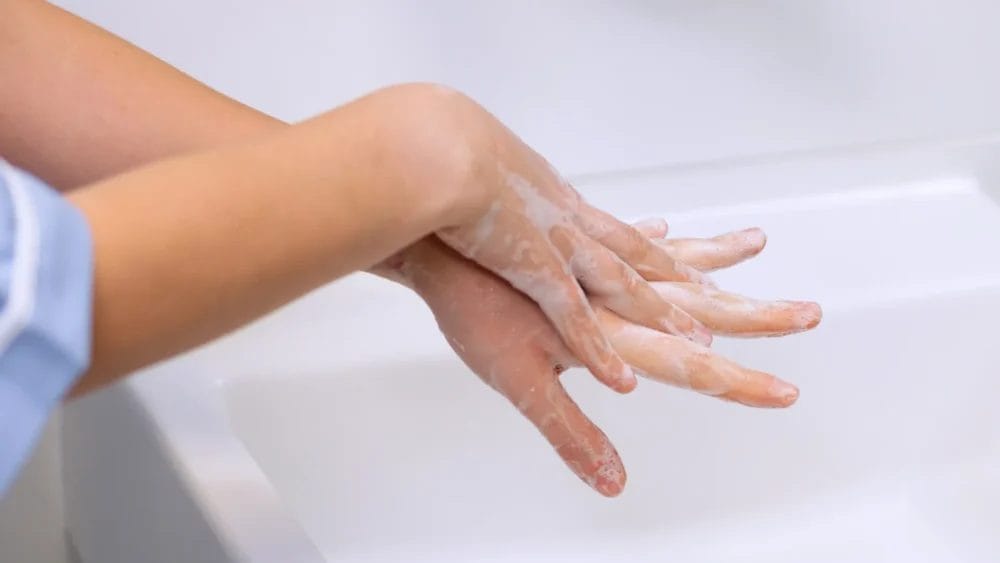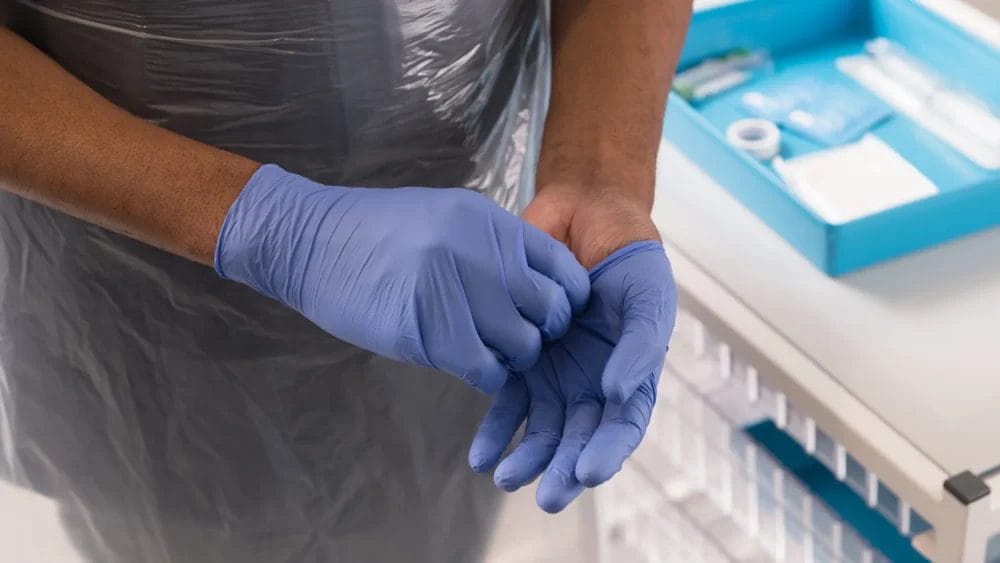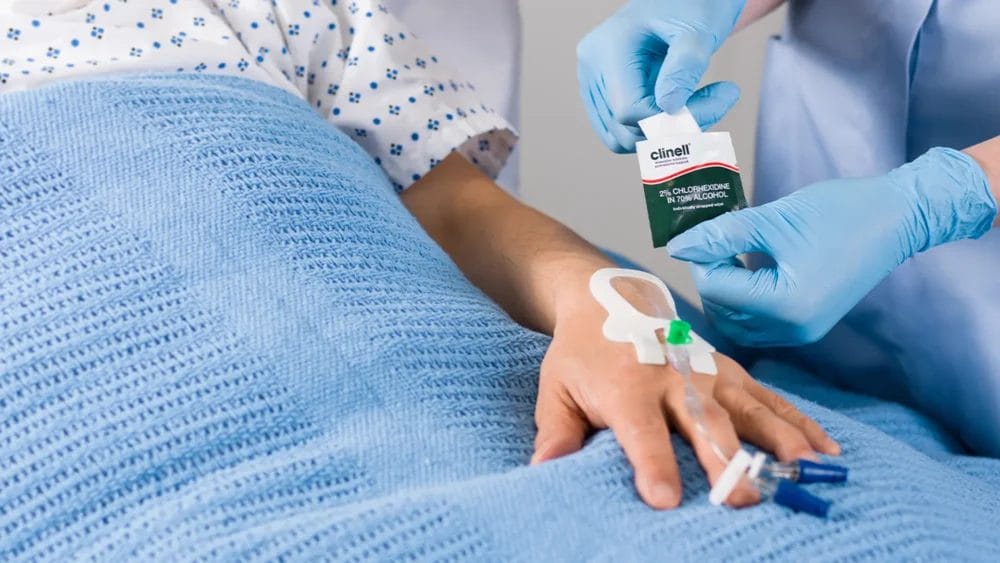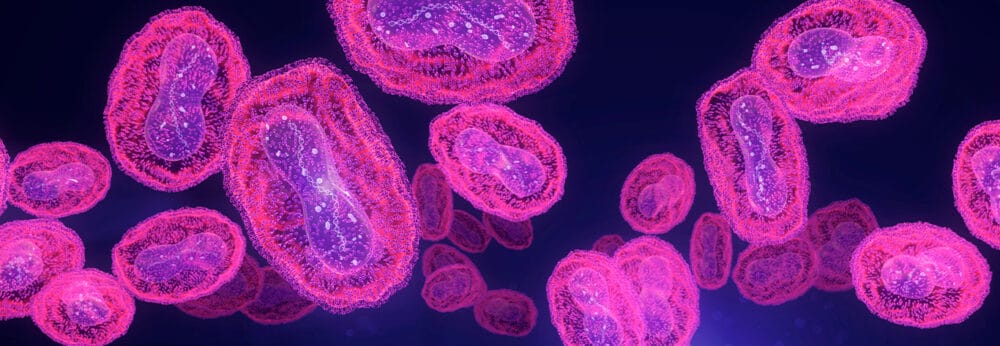Posted
30th November 2022
Events and Exhibitions
Our Clinical Specialist, Georgina Saviolaki, summarises her highlights from the IPS IV Forum Conference. Topics include, spread of pathogens from the sink, rethinking PPE, line flushing & antimicrobial stewardship.
This one-day event entitled ‘Vascular Access Getting to the Point of the Matter’ was held on the 18th November at Birmingham Conference and Events Centre, which attracted over 100 healthcare professionals, with special interest in vascular access and safe administration of intravenous drugs.
Do we need sinks in the ICU?

The first session was held by Dr Mark Garvey, Consultant Clinical Scientist at University Hospitals Birmingham, with the title of ‘The bugs we found in our lines’. Dr Garvey discussed the environmental survival of pathogens such as Clostridioides difficile, a spore forming pathogen that can survive in the environment for 5 months. Dr. Garvey talked about the implications of the spread of pathogens from the sink to the surrounding areas which can be found up to 2 metres away in the clinical Intensive Care Unit (ICU) environment. This possesses an infection risk to the staff and patients.
One example was the transmission of Pseudomonas aeruginosa from water to patients the details of which can be found in this paper. In addition, he provided some interesting findings of the presence of pathogens in IV trays which have been placed near the sink. This results in identification of the pathogen within the patient lines. Therefore, the question is: Do we need sinks in the ICU?
Related article: Waterless Bathing: Benefits & Implementation challenges
‘Rethinking PPE’: The misuse of gloves and contaminated curtains

Another interesting session was held by Professor Jennie Wilson, from the Richard Wells Research Centre at the University of West London. The title of the talk was ‘Rethinking PPE’. Prof. Wilson emphasised the overuse and misuse of gloves, even before the COVID-19 pandemic. When gloves are not used correctly, they can still lead to healthcare associated infections (HAIs). COVID-19 made things even worse and to some extent out of control. Prof. Wilson presented interesting results regarding the beliefs of healthcare staff around when and why to use gloves. The results showed that emotion and socialisation are key drivers on when and why staff use gloves based on their perception around cleanliness and dirtiness and this is not based on sound Infection Prevention and Control (IPC) measures or the use of risk assessment tools.
Finally, Prof. Wilson explored the underestimated role of curtains in the healthcare environment, and how they can get contaminated with various pathogens and result in transmission of HAIs. She presented a paper from Mahida et al, 2014 where environmental sampling demonstrated that 10 out of 34 patient curtains were contaminated with group A Streptococcus.
Extravasation, line flushing & antimicrobial stewardship

Andrew Barton, Nurse Consultant IV Therapy and Vascular Access, presented interesting talks titled ’Extravasation’ and ‘Line Flushing & Antimicrobial Stewardship’.
He discussed how extravasation injuries can easily happen and how a provision of standardised training programme can help prevent such injuries. Extravasation is defined as the unintentional leakage of fluids or medications from the vein into the surrounding tissue, causing skin problems. More information on nursing led vascular access service provision can be found in the white paper, that was produced by NIVAS in 2022.
Andrew also discussed the importance of line flushing, and its link to the development of antibiotic resistance. He explained that if lines are not flushed correctly, this leads to administration of subtherapeutic doses. In case of antibiotic use this is highly linked with development of antibiotic resistance as microorganisms can survive and go on to develop resistance to antibiotics.
Related article: Why antimicrobial resistance (AMR) poses a major threat to human health
Final thoughts
Finally, there were some interesting poster presentations on quality improvement projects and importance of teamwork. Teamwork was mentioned not only within different teams in the same trust, but within the Integrated Care Systems (ICSs) as well. This was done by the teams from The Princess Alexandra Hospital NHS Trust, West Hertfordshire Teaching Hospitals NHS Trust, and North Hertfordshire NHS Trust.
An example of quality improvement project was presented by the team from Worcestershire Acute Hospitals NHS Trust and their work on improving infection rates in Haematology patients with long-term vascular access devices (VAD), after introducing VAD passports.
Overall, the day involved a lot of interaction and discussion with other IV Forum members, who shared challenges from their trusts. The IV Forum conference will be back again next year with interesting talks and speakers.
If you’d like to find out about other events the GAMA Healthcare team has attended, visit our Events and Exhibitions section on our blog.
SHARE THIS ARTICLE
Tags
Latest News
Celebrating 20 Years of GAMA Healthcare: Our Story
This month, GAMA Healthcare celebrates 20 years of helping prevent…
Norovirus: Understanding its transmission and prevention in the UK
Introduction Norovirus is recognised as the leading cause of viral gastroenteritis…
Clean Between to Reduce Healthcare-Associated Infections
Healthcare-associated infections (HAIs) are a significant concern for healthcare facilities…
Mpox: emergence of a new threat
A new threat related to mpox is emerging, in the…





